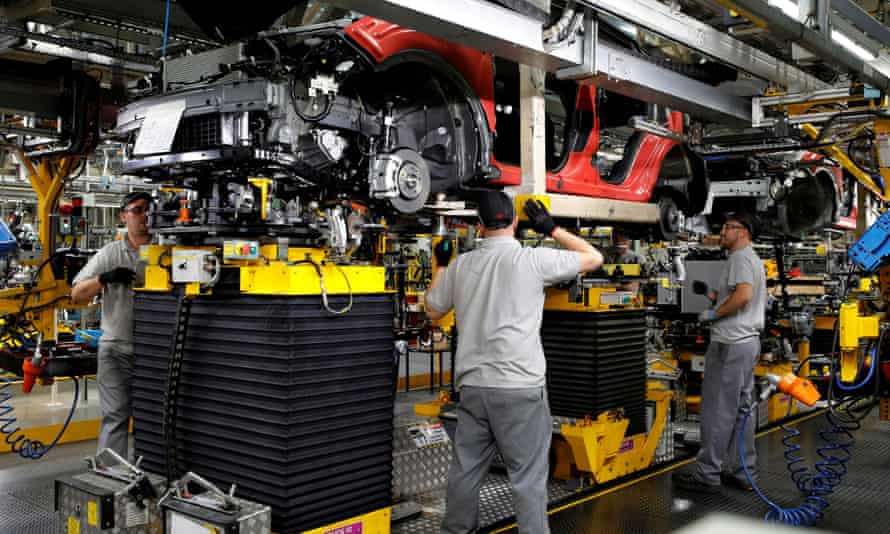Lowest levels of car production for any July since 1956, UK industry reports
Sector struggled with worker absences due to Brexit and Covid, and computer chips shortage

British car factories produced the fewest cars for any July since 1956 as they struggled with worker absences and the global shortage of computer chips.
UK carmakers made 53,400 vehicles in July, a 37.6% drop when compared with the same month in 2020, according to data from the Society of Motor Manufacturers and Traders (SMMT), the industry’s lobby group.
Demand for new cars has stayed relatively strong during the coronavirus pandemic, but manufacturers around the world have struggled to keep producing because of problems in their supply chains, most notably in the months-long delays to computer chips, or semiconductors, that are used to control everything from windscreen wipers to electric car batteries within the car.
Some analysts expect the chip shortages to last until next year, holding back the recovery of the car industry.
UK production over the course of 2021 is up by 18% compared with the first seven months of 2020, when car factories were shut for long periods during the first national lockdowns. Yet at 552,400 units, it is 29% below the 774,800 it reached over the same period in 2019 before the pandemic.
No large carmaker has been spared, and buyers are being forced to wait months for some new cars. German carmaker Volkswagen last week warned that it may have to scale back production further, after Japanese rival Toyota said that it would cut output by 40% in September.
Jaguar Land Rover and Nissan, the two largest manufacturers in the UK, have both previously been forced to cut production because of shortages.
During June and July manufacturers also had to contend with increased levels of employee absences, as more and more workers were “pinged” by their NHS apps when they had come into contact with people who later tested positive for coronavirus. The rules in England, home to nearly all the UK’s car plants, eased on 16 August so that vaccinated people no longer have to self-isolate after contact.
Mike Hawes, the SMMT’s chief executive, said UK carmakers still faced “extremely tough conditions”.
“While the impact of the ‘pingdemic’ will lessen as self-isolation rules change, the worldwide shortage of semiconductors shows little sign of abating,” he said. He added that the government could help the industry by reducing energy costs and business rates.
The weak UK output did have the knock-on effect of raising the share of sales from battery electric and hybrid cars, which combine a battery with an internal combustion engine, to the highest level on record. The SMMT said 26% of the cars made in the UK were electric or hybrids.
Some carmakers have favoured the production of battery electric vehicles during the semiconductor supply crunch in order to meet lower average emissions requirements that were brought in at the start of 2020, according to one industry consultant. That could mean that any increase in the share of electric vehicles may be short lived once the pressures ease.
However, Matthias Schmidt, an independent automotive analyst, said that “profitability trumps volume”, and noted that bosses at Volkswagen, Renault and Mercedes-Benz-owner Daimler had said they will focus their resources on the internal combustion engine cars with the highest profit margins while supplies are constrained.